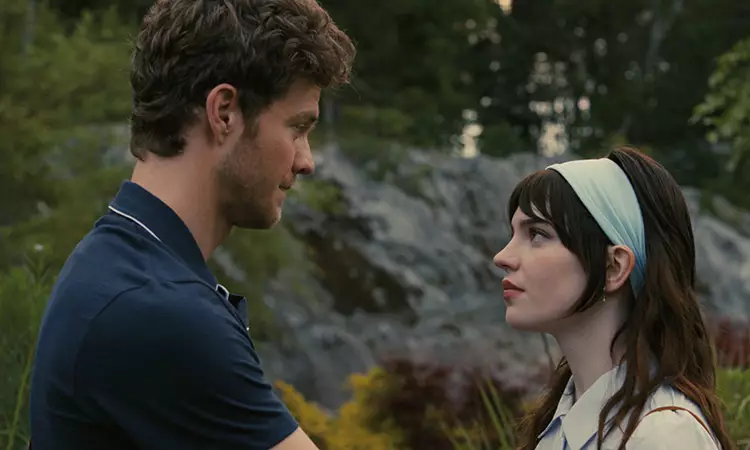In a landscape where the fears and fascinations of society intersect, Drew Hancock’s debut feature film, *Companion*, emerges as a unique commentary on the dichotomy of modern relationships within a capitalist framework. Following the thoughts expressed by Naomi Alderman regarding the duality of utopias and dystopias in art and literature, Hancock’s film invites viewers to navigate a narrative that is as thought-provoking as it is entertaining.
At first glance, *Companion* may appear to be a simple sci-fi comedy-horror film; however, it brilliantly harnesses humor to delve into the serious implications of contemporary relationships. The film cleverly uses the isolated setting of a lakeside retreat, owned by the enigmatic Sergey (played by Rupert Friend), to satirize the monotonous and often dreary reality of dating in the digital age. The character dynamics—involving the quirky couple Iris (Sophie Thatcher) and Josh (Jack Quaid), as well as their friends Eli (Harvey Guillén) and Patrick (Lukas Gage)—serve to highlight the absurdities of modern romance as they navigate through the layers of trust, connection, and commodification present in romantic endeavors today.
The film thrives on its ensemble cast, each character representing different facets of relationship struggles exacerbated by a society that often reduces personal connections to transactions. Thatcher shines in her portrayal of Iris, providing depth to a character whose trust in her partner, Josh, becomes increasingly questionable. Quaid’s performance adds a layer of manic energy that resonates with Richard Lillard’s iconic roles, evoking a sense of nostalgia while addressing the chaos within every relationship. Meanwhile, Friend’s Sergey stands out as a darkly comedic antagonist, embodying the essence of a society focused on hedonism and control, pushing the plot into realms of violence and hilarity.
What further elevates *Companion* from the ranks of predictable genre films is its intertextual engagement with established sci-fi narratives. It invokes memories of classics such as *The Terminator*, *Ex Machina*, and *Don’t Worry Darling*, taking elements from these works and infusing them with fresh perspectives on gender dynamics and power. The draw of technology into the romantic sphere serves as a potent mirror reflecting both the absurdities of love in the age of apps and the often dehumanizing experience it can provoke. Hancock navigates through these themes with caution, ensuring that the comedic elements do not undermine the serious critique at play.
Ultimately, *Companion* emerges as a piece of art that demands to be discussed and debated. Its clever comedic elements paired with dark undertones create an environment ripe for post-viewing conversations—perfecting its status as an unconventional date movie. In this cinematic landscape, Hancock offers viewers a chance to reflect on their own romantic predicaments while simultaneously entertaining them with a rollercoaster of emotions. As the lines blur between humor and horror, the film unapologetically suggests that maybe, just maybe, a reset is exactly what our relationships need in this chaotic digital world.

